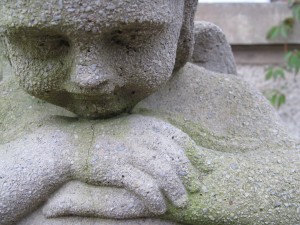I admit it: I’ve not bought a single Christmas gift yet. My husband, God bless him, has ordered a few things. My guess is that Amazon is going to become my best friend over these next few weeks. My work schedule has been full as well as continuing to make doctor and physical therapy appointments and block off several whole days for injections. Oh, and my husband had some minor surgery this month, too.
There are only 15 more days until Christmas (all of them shopping days online!)
As I face both that deadline and my calendar, the core question for me is
“How will I relate to my limitation?”
Will I slam myself for my inefficiency?
Will I extend compassion to my “to do” list?
Will I feel shame over the fact that my desk is currently also piled a foot high with papers? (okay, maybe 6 inches, but it’s a big desk) Or do I feel compassion and actually (gasp) give thanks for all the wonderful opportunities I have had this fall that have occupied my life and energy and left me with a full desk?
When I think of women who handled limitations well, my mind goes to Naomi and Ruth.
The limitations they faced were different than mine:
The ache of grief
Poverty
Cultural rejection as women and, for Ruth, as a Moabite
It is an interesting thing about human limitations: we connect, even across centuries, around them as we relate to the feelings that our inadequacies generate, regardless of the particulars or extremity of our limitations.
In that sense, maybe we aren’t so different…
I have not suffered the death of a husband and son; yet I have certainly ached over the limitations that spring from my own chronic pain.
I have never gone hungry and scavenged for food; yet like many middle-class Americans, I have felt inadequate, especially this time of year, as I am often aware of money as a limited resource.
I have never known the overwhelming limitations that Naomi and Ruth’s feminine souls placed on them religiously, culturally, and economically; but I have known the pain of having my thoughts dismissed and my voice not heard because I happen to be a woman.
As I look as the lives of my fore-mothers, I see enormous and active faith in the face of their limitations:
In the ache of grief, Naomi just kept moving, putting one foot in front of another, seeking God as she moved back to her homeland. She was honest about her bitterness when she arrived: she both exercised her faith and owned her limitations, even her emotional ones.
In the face of poverty, Ruth did the same; she kept going. Because God is God, she “just so happened” to glean in Boaz’ field…. and eventually became his bride. Her limitation turned to miraculous provision when her faith met the grace of God.
In the midst of severe limitations imposed by a cultural and religious context that separated the “ins” and the “outs” by heritage, God “broke” all God’s own rules when, through the compassion of the levirate provision of Jewish law, the Moabite Ruth married Boaz and eventually became the grandmother of King David. She is also one of four women mentioned in Jesus’ genealogy.
In the face of God’s grace, faith, and compassion, who are we to fear, rebuke, or judge our own limitations? How about some self-compassion instead?
What limitation will you consider meeting with self-compassion instead of rejection, contempt, and judgment this year?
















